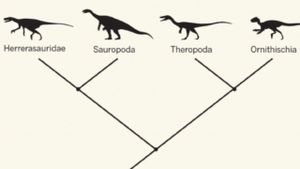Former President Donald Trump's assertion about U.S. aid to Gaza has sparked controversy as experts reject his claim of $50 million allocated for contraceptives destined for the war-torn region. This statement, presented during remarks to reporters, paints the Gaza Strip as emblematic of government waste underlining the contentious discussions surrounding U.S. foreign aid.
During his comments, Trump remarked, "We identified and stopped $50 million being sent to Gaza to buy condoms for Hamas," linking the claim to the militant group ruling the Palestinian territory. Yet, the basis for such assertions has come under scrutiny, with considerable pushback from both foreign aid experts and officials.
Trump's comments were not merely casual statements; they were part of his broader narrative aimed at portraying U.S. international spending as irresponsible. Over the years, Trump has recurrently highlighted various spending programs he deems excessive, using them to galvanize political support. Such claims resonate with his base, catering to sentiments around fiscal discipline and accountability.
Experts, including those from leading aid organizations, assert there is no evidence supporting Trump's figures. According to the Taylor Institute for International Development, which focuses on transparency within foreign aid, the claim lacks substantiation and fails to reflect the on-ground realities of U.S. aid allocation.
The office of the United States Agency for International Development (USAID) issued statements pointing out the intricacies of aid to Gaza. A USAID representative shared, "Aid to Gaza is focused on humanitarian relief and rebuilding efforts, not on purchases for adult products. This form of aid is closely monitored and subjected to rigorous oversight to maximize impact and efficiency." They emphasized the importance of reproductive health services as part of broader humanitarian aid but noted the absence of allocations as suggested.
Critics argue Trump's claims reflect a broader pattern of misrepresentation of facts to achieve political objectives. By framing U.S. assistance as funding for indulgence rather than necessities, he taps heavily on underlying political currents. According to Taylor Institute analyst Sarah O'Leary, "This rhetoric can shift public perception about valid humanitarian efforts and undermine the narrative of helping those truly in need. The facts are clear: U.S. aid primarily seeks to address urgent humanitarian crises and infrastructure rebuilding efforts.”
The Gaza region, devastated by years of conflict, has seen substantial humanitarian needs. Many NGOs involved there focus on sustainable development, health, education, and social justice, utilizing U.S. aid to address immediate and long-term challenges.
This tendency for misinformation isn’t limited to Trump. Across multiple platforms, claims about aid spending often appear without the necessary fact-checking, leading to confusion among the public about what constitutes legitimate governmental financial priorities.
The debate around aid to Gaza is not just about the funds themselves, but how they’re portrayed in the media and public discourse. The broader conversation about the appropriateness of U.S. assistance worldwide is increasingly fraught with politicized narratives.
Even as Trump's remarks align with specific political goals, they're met with significant skepticism from both analysts and the public who demand accurate representations of U.S. aid. The erroneous figure of $50 million for condom purchases underlines the importance of accountability and clarity in discussing government spending and representing foreign aid initiatives.
For many stakeholders, the ultimate aim of U.S. financial assistance—especially to conflict and disaster-stricken areas like Gaza—must remain grounded in improving lives, revitalizing communities, and fostering development, rather than being cast as a case of misguided extravagance.
To sum it up, the push and pull between political narrative and factual accuracy was brought to light with Trump's acquittal of funding for condoms. While such statements may stimulate debate, the facts present the real focus: humanitarian aid plays an indispensable role as nations grapple with crises around the world.



